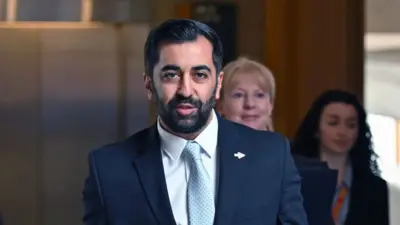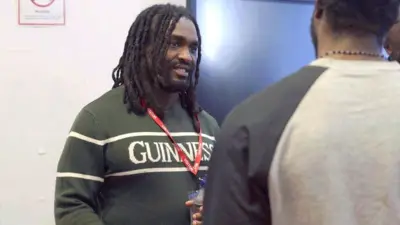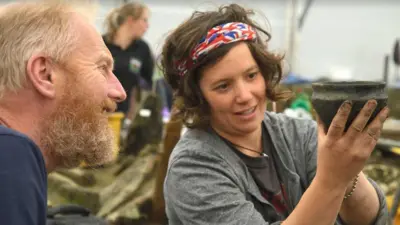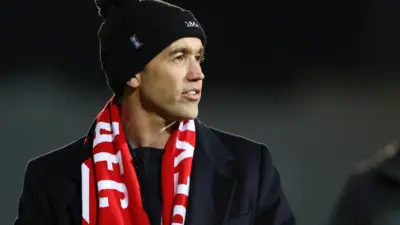We've updated our Privacy and Cookies Policy
We've made some important changes to our Privacy and Cookies Policy and we want you to know what this means for you and your data.
Nadine Dorries says dyslexia made her muddle words in video
- By Charley Adams
- BBC News
Image source, Reuters
The culture secretary has said dyslexia caused her to mix up her words in a video that has been shared on social media.
In the TikTok video, Nadine Dorries talks about being able to "downstream" instead of download films online and refers to tennis courts as "pitches".
She said it was tough seeing commentators "mock me for something that is beyond my control".
"I have dyslexia, which means that when I speak I often run my words together."
In the video, posted on Friday by Conservative MP Luke Evans on his TikTok account, he asks the cabinet minister about what her government department does.
She tweeted on Saturday to defend herself against the criticism she faced over the terms she used in the video, saying it can be difficult finding the right expression when speaking.
"Dyslexia affects people differently. For me, it affects my speech more than my writing, which is why I find solace in writing", she said.
In the video Ms Dorries also says: "We want to make the internet in the UK the safest internet in the world."
'Thick skin'
This article contains content provided by Twitter. We ask for your permission before anything is loaded, as they may be using cookies and other technologies. You may want to read Twitter cookie policy and privacy policy before accepting. To view this content choose 'accept and continue'.
End of Twitter content, 1
In her tweet, Ms Dorries said it can be "difficult" being in front of a camera, writing a book or just speaking to a friend.
"I've been in politics a long time and you grow a thick skin. It's why I haven't spoken publicly much about how it affects me.
"For other dyslexia sufferers, we learn that it's what you achieve in life that counts, not what those who mock you say."
The NHS describes dyslexia as a common learning difficulty that mainly causes problems with reading, writing and spelling.
A spokeswoman from one dyslexia support charity, the Helen Arkell Dyslexia Centre, said: "Dyslexia affects around one in ten people and is different for everyone.
"It mainly affects writing and spelling as well as organisation and memory. People with dyslexia, especially with the right help and support, can be very successful in whatever they choose to do."
Top Stories
Features & Analysis
Most read
Content is not available








